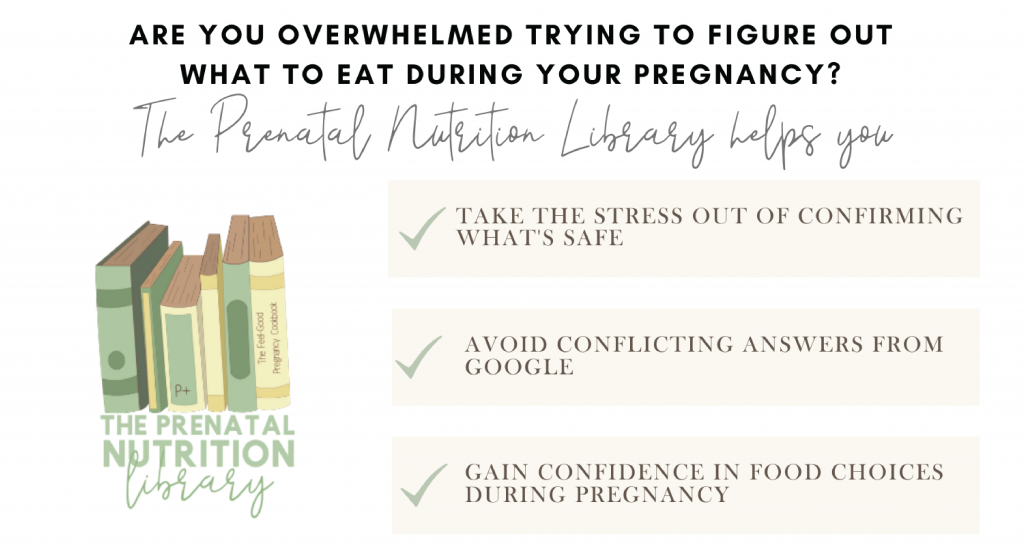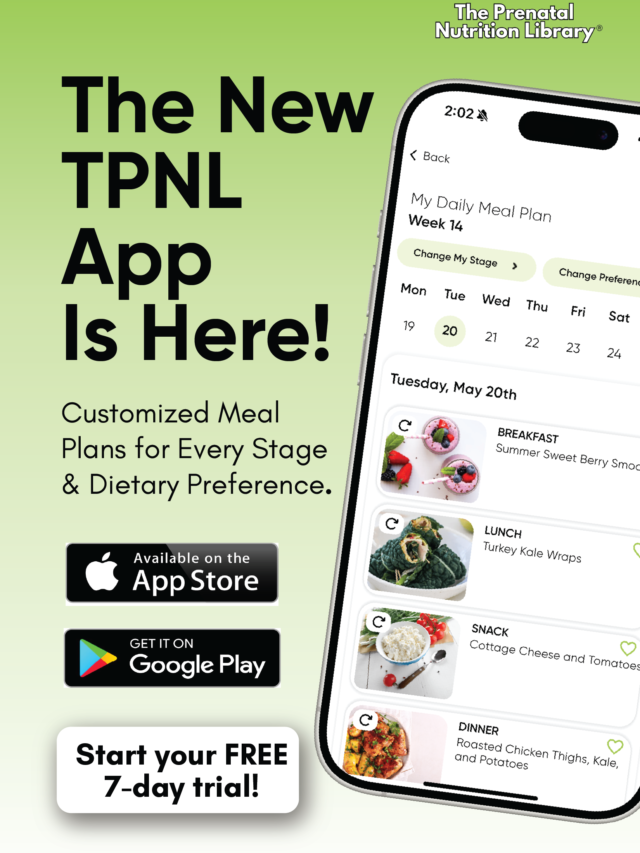
Congratulations! You have just discovered that you are expecting a beautiful bundle of joy. The first few weeks of pregnancy are exciting–albeit, somewhat scary and overwhelming too. These first few weeks to months can also bring about unwanted symptoms like nausea and vomiting, often referred to as “morning sickness”. Where’s the manual on combating morning sickness?
You have spent the last few months making sure your diet was rich in nutrients like folate, choline, and iodine (…Right? If not–check out this blog post to see the benefits of an Iodine rich diet in preconception and pregnancy!) and keeping your body in an optimal reproductive state to begin your family. Or, you had no plans to become pregnant–but oh what a blessing it is! Either way, you have been so excited…until this morning, you woke up with morning sickness. It’s no fun!
You knew this would happen, but you had no idea it would be this bad. Instead of spending your mornings excitedly skipping to work (because that’s what we all do, right?), you spend your morning wrapped around the porcelain throne wondering how on earth you still have anything left in you. And then you find out morning sickness should really be called “any time of day ” or “all day long” sickness. Sound familiar? Thought so. Not to fear!
We are going to chat today about the nutrition implications of morning sickness and what options may be better than others to keep nausea at bay.
How to Combat Morning Sickness
So…what gives? What is it that causes early pregnancy morning sickness? Well, scientists, obstetricians, and gynecologists don’t 100% know what causes this nausea and vomiting in pregnancy. There are many theories. Maybe it’s low blood sugar or changes in hormones.
According to a Journal published in 2018, titled The Effect of Young Coconut Water against Morning Sickness among Women in the First Trimester of Pregnancy, by Ariestini and Purnomo, morning sickness is caused by the influence of pregnancy hormones on the gut. The article states:
“The slowing motility of the gastric muscles due to the influence of pregnancy hormones causes an increase in the amount of stomach acid that irritates the gastric mucosa. Pregnant women experience nausea, vomiting, bloating, frequent burping, sour taste, bitterness, loss of appetite, and discomfort which causes the loss of fluids and some essential minerals, such as sodium, potassium, calcium, and magnesium.”
You can see why long term morning sickness could lead to some pretty serious complications. Hyperemesis Gravidarum, or severe morning sickness lasting past the 14th week of pregnancy occurs in about .5 to 2% of all pregnancies. HG can lead to dehydration, electrolyte imbalances, and even severe weight loss. That being said, we want to get morning sickness under control if at all possible!
During the first trimester, you don’t need much more in terms of calories compared to what you needed before you became pregnant.
That being said, being able to keep down most of what you’re ingesting is helpful. If you can’t due to morning sickness, it is tough to get in enough calories for you yourself, let alone you and baby. Elisa Zied, M.S., R.D., suggests that it is more important to focus on foods you can actually stomach rather than nutrition itself (Gullon, 2011). It’s 1000% okay to eat what you can keep down right now.
Making sure you take a quality prenatal vitamin is essential to help ensure you’re getting in your daily dose of folate and other important vitamins and minerals. Ryann covers what to look for in a prenatal vitamin in this post. Plus has a list of her most commonly recommended prenatal vitamins and nausea management strategies inside The Prenatal Nutrition Library. Once nausea subsides, focus on eating a more balanced, nutrient-dense diet.
So, what are some foods that may be better tolerated while experiencing nausea? How can we combat morning sickness?
The Nutrition Care Manual (Nutrition Care Manual, 2019) suggests keeping foods relatively bland, and keeping snacks like Saltine crackers and pretzels on deck at all times.
Here are some other tips and strategies to combat morning sickness:
– Many women find eating small frequent meals/snacks throughout the day to be more easily tolerated than larger meals.
– Keep easy to digest foods, such as crackers and pretzels, with you during the day and at your bedside. You may even try eating a few crackers before getting out of bed in the morning.
– Many women find that having an empty stomach triggers nausea. Keeping snacks on hand can be helpful to prevent this. Try one of these best snacks for nausea during pregnancy ideas.
– Stay hydrated during these early weeks (and throughout) pregnancy. Drink water or other beverages like unsweetened teas, coconut water, or electrolyte drinks between meals.
– Eating ginger may improve or reduce nausea. Whole ginger or ginger tea are lower in sugar than ginger ale.
– High-fat greasy foods and spicy foods may make nausea worse.
– Our sense of smell is heightened during pregnancy and some smells may make nausea worse. But smelling lemon or smelling a lemon essential oil may actually help reduce nausea or an upset stomach.
Try eating foods that may not be your absolute favorite.
You’ve heard the horror stories: Martha can’t eat her favorite cereal anymore because last time she ate it…it all came back up…and she can’t look at it the same again. Opt for foods that are flavorless and cool, like dry toast or maybe popsicles and frozen fruit. The Nutrition Care Manual also recommends easy to digest foods like mashed potatoes, soups, or puddings. If it is easier to keep down liquids, trying calorie-dense drinks like smoothies with peanut butter, juices, or broths are a great option to keep your energy up (Nutrition Care Manual, 2019).
During your bouts of morning sickness, limit foods that could intensify your morning sickness.
Foods that could potentially be raw or undercooked, such as undercooked meats are smart to avoid. Additionally, if you have a lactose intolerance or sensitivity, consuming dairy foods may make your symptoms even worse. Try to limit common heartburn triggers like caffeine, tomatoes, spicy foods, citrus, and of course, no alcohol. These foods may cause GI distress or acid reflux, which will only enhance your symptoms.
If you feel that your morning sickness is only getting worse as time goes on, please discuss this with your doctor or registered dietitian. Your medical team can work together to create a plan best suited for you and help you get your morning sickness under control so you can fully enjoy this special time.
Looking for more immediate nutrition help? Click here to download a 5-DAY meal plan!

Written by: Kaleigh Eastep, Dietetic Intern
Edited by: Ryann Kipping, RDN, CLEC
References:
Ariestini, T. R., & Purnomo, W. (2018). The Effect of Young Coconut Water against Morning Sickness among Women in the First Trimester of Pregnancy. Indian Journal of Public Health Research & Development, 9(11), 1729. Retrieved from https://search-ebscohost-com.libproxy.lib.ilstu.edu/login.aspx?direct=true&db=edb&AN=133893429&site=eds-live&scope=site
GULLON, M. (2011). Food Fixes. Fit Pregnancy, 18(1), 70–99. Retrieved from https://search-ebscohost-com.libproxy.lib.ilstu.edu/login.aspx?direct=true&db=c9h&AN=61207430&site=eds-live&scope=site
Owe, K. M., Støer, N., Wold, B. H., Magnus, M. C., Nystad, W., & Vikanes, Å. V. (2019). Leisure-time physical activity before pregnancy and risk of hyperemesis gravidarum: a population-based cohort study. Preventive Medicine, 125, 49–54. https://doi-org.libproxy.lib.ilstu.edu/10.1016/j.ypmed.2019.05.002
Nutrition Care Manual. Morning Sickness Nutrition Therapy. (2019).





